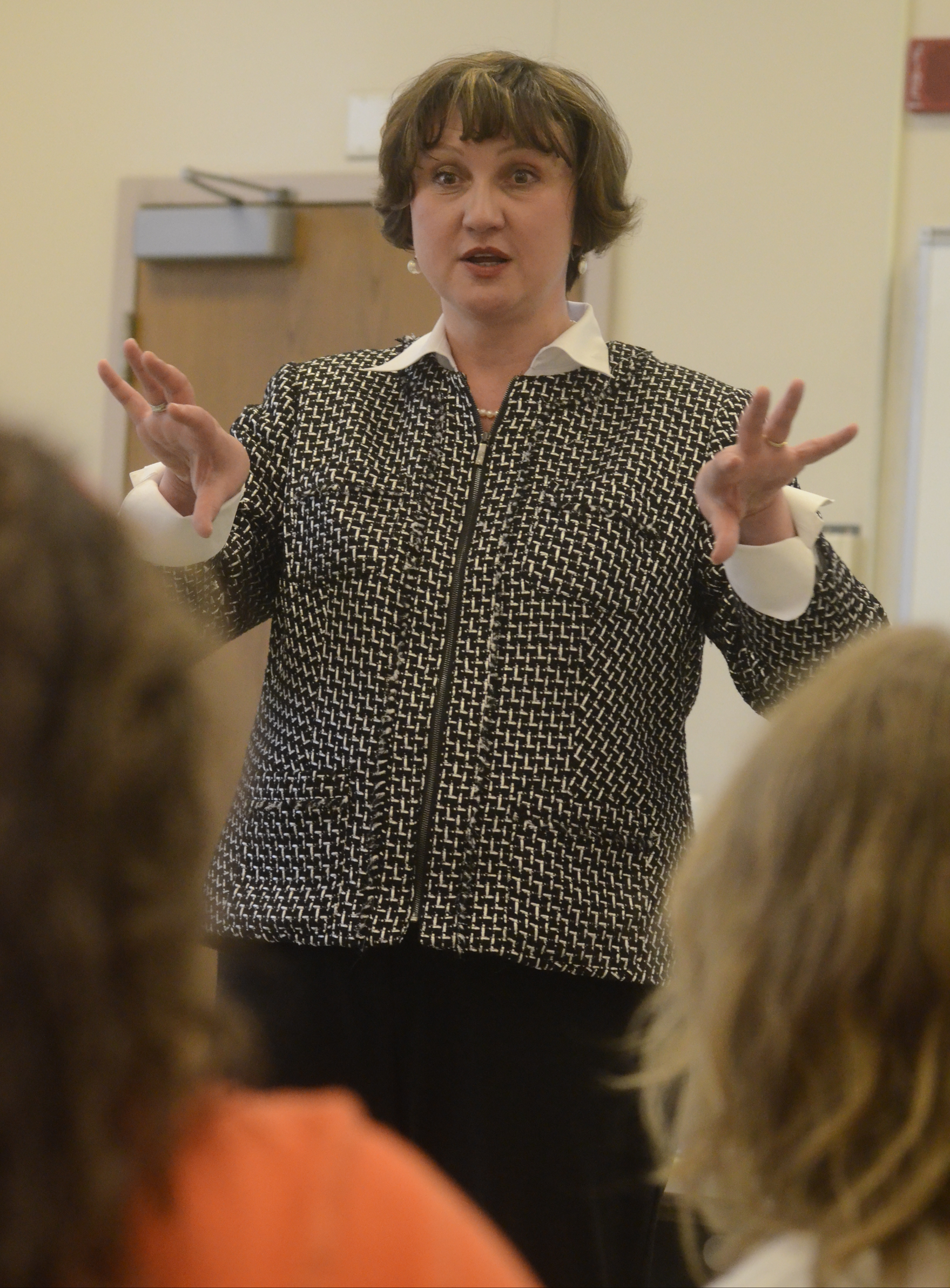Growing up behind the Iron Curtain in Ukraine, Irina Khmelko wasn't allowed to wear jewelry to school.
"Everybody was equal, that was the thing, equality. No matter how hard you work, no matter what you do," Khmelko said Monday from her office at UTC, where she is a professor of political science.
The Soviet regime collapse in 1991 brought freedom to Ukrainians, but it also left the economy in shambles and the nation politically bewildered.
Financially, the Khmelko family was devastated -- the savings that Khmelko's parents had accumulated for her since her birth fell to 17 cents.
The $4,000 her grandmother planned to spend on her own funeral expenses dwindled to 38 cents.
Today, Khmelko's hometown, the nation's capital city of Kiev, is at the center of another national identity crisis, one that turned bloody last week. Her parents are in their 70s and live downtown near the recent violent protests.
But a distance of more than 5,300 miles is not keeping Khmelko from lending her assistance to her native country. She is combining her expertise obtained in the United States with her Ukrainian background and passion for freedom to aid an embattled nation feeling the lingering effects of the oppressive regime in which she was raised.
"We [the United States] have an over-200-year history and they [Ukraine] have barely 20 years, so us sharing with them what we know is really the way to go," said Khmelko, who completed her undergraduate studies in Ukraine and came to the United States in 1995. Now a U.S. citizen, she earned her PH.D. in public policy from Indiana University. She joined the University of Tennessee at Chattanooga in 2010.
Khmelko, an expert on eastern Europe, gave a presentation to the U.S. Embassy in Kiev last year and often finds herself brushing shoulders with other international diplomats. Such occasions are not her primary means of offering help to Ukraine, though.
Rather, it's through what Khmelko calls "citizen diplomacy" and her work as an academic journalist, where she is interacting with the Ukrainian education community to provide democratic insight that can trickle to students and the masses, thus bettering the nation starving for wisdom in how to self-govern.
"I actually work with my fellow Ukranians via Skype, so even though I'm not there physically, we see each other regularly," Khmelko said. "We have a lot to share, and when these people are so new to democracy, they do not know how to build a parliament or a presidency."
Khmelko is also vice president of Chattanooga Sister Cities. She oversees the organization's efforts to help Chattanoogans interact with people in Nizhny Tagil, a Russian city.
Though a still-oppressive Russia is a major player in the controversy facing her home nation with its efforts to keep Ukraine loyal and away from the more democratic European Union, Khmelko does not harbor ill will toward the Russian people.
"No animosity at all. If anything it's compassion in understanding these people are dealing with incredible challenges," Khmelko said.
If a legitimate presidential election can be ensured in May then Ukraine will be able to move forward, she said.
President Barack Obama acknowledged agreed Wednesday when he addressed the situation, urging that the Ukrainian military does not become involved.
"Ultimately, the government's responsible for making sure that we shift toward some sort of unity government, even if it's temporary, that allows us to move to fair and free elections so that the will of the Ukrainian people can be rightly expressed without the kinds of chaos we've seen on the streets, without the bloodshed that all of us, I think, strongly condemn," Obama said.
Personally knowing both cultures brings Khmelko a unique perspective and source of gratification for her continued efforts to spread the principles of human rights and freedom.
"I'm looking around here and I'm thinking this is a very good system, with all the shortcomings, but look what we have here," Khmelko said. "It's just amazing.
"People in Ukraine are still aspiring. They're still trying to get to where we are," she said. "Many think it's just economically. No, first and foremost, I think it's about freedom, liberty, our democracy that we take so much for granted."
The Associated Press contributed to this report.
Contact staff writer David Cobb at dcobb@timesfreepress.com or 423-757-6731.

